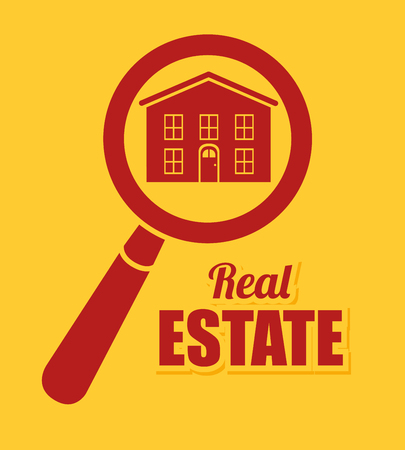1. Pre-Approval vs. Pre-Qualification
If you’re a first-time homebuyer, you’ve probably heard the terms “pre-approval” and “pre-qualification” tossed around a lot. While they might sound similar, they actually mean different things—and understanding the difference can give you a major edge in a competitive housing market.
What Is Pre-Qualification?
Pre-qualification is often the first step in the mortgage process. It gives you a general idea of how much you may be able to borrow based on basic financial information you provide—like your income, debts, and assets. It’s usually a quick and informal process, and it doesn’t involve a credit check or verification from a lender.
Key Points:
- No credit check required
What Is Pre-Approval?
Pre-approval is a more serious step that involves submitting official documents (like tax returns and pay stubs) and undergoing a credit check. The lender reviews your full financial profile and provides a conditional commitment for a specific loan amount. This shows sellers you’re serious and financially prepared to buy.
Key Points:
Why It Matters in a Competitive Market
If youre shopping for homes in a hot market where multiple buyers are making offers, having a pre-approval letter can help your offer stand out. Sellers are more likely to accept offers from buyers who have already been vetted by a lender—it reduces uncertainty for them.
Quick Comparison Table:
| Pre-Qualification | Pre-Approval | |
|---|---|---|
| Lender Review | No formal review | Thorough financial review |
| Credit Check | No | Yes |
| Documentation Required | ||
| Takes Time? | ||
| Sellers Take Seriously? |
If youre planning to start house hunting soon, getting pre-approved can put you ahead of the game. It shows real estate agents and sellers that youre not just browsing—you’re ready to make a move.
2. Down Payment and Closing Costs
When youre buying your first home, its important to understand the upfront costs that come with it. Two of the biggest expenses youll encounter early on are the down payment and closing costs. These arent just optional fees—theyre essential parts of the homebuying process.
What Is a Down Payment?
A down payment is the amount of money you pay upfront toward the purchase price of your home. Most lenders require a percentage of the total home cost as a down payment before approving your mortgage. The more you put down, the less you’ll need to borrow, which can lead to lower monthly payments and better loan terms.
Common Down Payment Percentages
| Loan Type | Typical Down Payment |
|---|---|
| Conventional Loan | 3% – 20% |
| FHA Loan | 3.5% |
| VA Loan (for veterans) | 0% |
| USDA Loan (rural areas) | 0% |
What Are Closing Costs?
Closing costs are additional fees youll pay when finalizing your home purchase. These costs typically range from 2% to 5% of the homes purchase price and cover services like appraisals, title searches, loan origination fees, and more. First-time buyers often overlook these expenses because theyre not included in the sticker price of the home.
Common Closing Cost Items
| Fee Type | Description |
|---|---|
| Loan Origination Fee | The lender’s charge for processing your loan application. |
| Appraisal Fee | Pays for a professional estimate of the homes value. |
| Title Insurance | Protects against future legal claims on the property. |
| Home Inspection Fee | Covers the cost of inspecting the home for issues. |
| Escrow Fees | Pays for third-party handling of funds during closing. |
| Recording Fees | Covers local government charges to record the sale. |
Budgeting for Upfront Costs
If youre planning to buy a $300,000 home with a 5% down payment and estimated 3% closing costs, heres what your upfront expenses might look like:
| Cost Type | Estimated Amount |
|---|---|
| Down Payment (5%) | $15,000 |
| Closing Costs (3%) | $9,000 |
| Total Upfront Costs | $24,000 |
This is why it’s so important to save ahead of time—not just for your down payment but also for all those extra closing fees that come with buying your first home.

3. Contingency Clauses
When youre buying a home for the first time, it’s easy to get overwhelmed by all the paperwork and unfamiliar terms. One of the most important things to understand is contingency clauses in your purchase agreement. These are conditions that must be met for the sale to go through, and they help protect you as a buyer. If these conditions aren’t satisfied, you can usually back out of the deal without losing your earnest money.
What Are Common Contingencies?
Contingency clauses are like safety nets. They give you the chance to make sure everything checks out before committing fully to the purchase. Here are some of the most common ones:
| Contingency Type | Purpose | Why It Matters |
|---|---|---|
| Home Inspection Contingency | Allows the buyer to hire a professional inspector to assess the property’s condition. | If major issues are found (like roof damage or plumbing problems), you can negotiate repairs or walk away. |
| Financing (or Mortgage) Contingency | Makes the sale dependent on the buyer securing a mortgage loan. | If your loan application is denied, this clause lets you cancel the contract without penalty. |
| Appraisal Contingency | Ensures the home’s appraised value meets or exceeds the agreed purchase price. | If the appraisal comes in low, you can renegotiate or exit the deal. |
| Sale of Current Home Contingency | The buyer needs to sell their current home before buying a new one. | This gives you time to sell your property so you’re not stuck paying two mortgages. |
Why Should First-Time Buyers Care?
These contingencies exist to give buyers peace of mind. Without them, you could end up locked into a deal with no way out—even if something unexpected happens. As a first-time homebuyer, its important to work closely with your real estate agent to include appropriate contingencies in your offer based on your situation.
4. Escrow and Earnest Money
When youre buying a home for the first time, two important terms youll hear during the process are “escrow” and “earnest money.” Understanding these can help you feel more confident when making an offer.
What Is Escrow?
An escrow is a neutral third-party account that holds money and documents on behalf of both the buyer and the seller during a real estate transaction. It ensures that both sides meet all conditions of the agreement before the sale is finalized. Think of it as a safety zone where funds stay until everyone has done their part.
How Escrow Works:
| Step | Description |
|---|---|
| 1. Offer Accepted | The buyer and seller agree to terms, and an escrow account is opened. |
| 2. Earnest Money Deposited | The buyer puts down earnest money into the escrow account to show good faith. |
| 3. Inspections & Appraisals | The property is inspected and appraised while funds remain in escrow. |
| 4. Final Paperwork | The lender, title company, and agents finalize documents. |
| 5. Closing | The escrow officer releases funds to the seller, and ownership transfers to the buyer. |
What Is Earnest Money?
Earnest money is a deposit made by the buyer when they submit an offer on a home. It shows the seller that youre serious about buying. The amount usually ranges from 1% to 3% of the homes purchase price but can vary based on local market conditions.
What Happens to Earnest Money?
- If the deal goes through, your earnest money is applied toward your down payment or closing costs.
- If you back out of the deal for a valid reason (like a failed inspection or financing issue), you usually get your earnest money back.
- If you walk away without a valid reason, you might lose that deposit.
Tip:
Always read your purchase agreement carefully so you know under what conditions your earnest money is refundable. Working with a trusted real estate agent can help guide you through this part of the process smoothly.
5. Fixed-Rate vs. Adjustable-Rate Mortgages
When youre buying your first home, choosing the right type of mortgage is a big decision. One of the most important choices you’ll face is whether to go with a fixed-rate mortgage or an adjustable-rate mortgage (ARM). Both have their pros and cons, and understanding how each works can help you make the best choice for your financial situation and long-term goals.
What Is a Fixed-Rate Mortgage?
A fixed-rate mortgage has an interest rate that stays the same for the entire life of the loan. This means your monthly principal and interest payments will never change, even if market interest rates go up or down. It’s a popular option because it offers predictability and stability, making it easier to plan your budget over time.
Benefits of a Fixed-Rate Mortgage:
- Predictable monthly payments
- Protection from rising interest rates
- Easier long-term budgeting
What Is an Adjustable-Rate Mortgage (ARM)?
An adjustable-rate mortgage starts with a lower interest rate for a set period (usually 5, 7, or 10 years), then adjusts periodically based on market conditions. After the initial fixed period, your rate—and therefore your payment—can increase or decrease annually.
Benefits of an ARM:
- Lower initial interest rate compared to fixed-rate loans
- Potential savings if you sell or refinance before the adjustment period begins
- Might qualify for a larger loan amount due to lower starting payments
Fixed vs. Adjustable: Which Is Right for You?
The best choice depends on your financial goals, how long you plan to stay in the home, and your tolerance for risk. Heres a quick comparison:
| Fixed-Rate Mortgage | Adjustable-Rate Mortgage (ARM) | |
|---|---|---|
| Interest Rate Stability | Remains the same throughout the loan term | Changes after initial fixed period |
| Initial Interest Rate | Typically higher than ARMs intro rate | Usually lower during intro period |
| Best For | Buyers planning to stay in their home long-term | Buyers expecting to move or refinance within a few years |
| Risk Level | Low – payments are predictable | Higher – payments can rise significantly over time |
If youre looking for peace of mind and long-term stability, a fixed-rate mortgage might be the better fit. But if youre confident youll move or refinance before rates adjust—or youre comfortable taking on some risk for potential savings—an ARM could be worth considering.
6. Homeowners Association (HOA) Fees
If youre buying a home in a planned community, condo, or townhouse development, chances are youll encounter HOA fees. These are monthly or annual fees paid to a homeowners association that manages the shared spaces and amenities in your neighborhood.
What Do HOA Fees Cover?
HOA fees help maintain the quality and upkeep of the community. Heres a breakdown of what these fees often include:
| Whats Covered | Examples |
|---|---|
| Maintenance of Common Areas | Lawn care, snow removal, cleaning shared hallways |
| Amenities | Pools, gyms, clubhouses, parks |
| Utilities for Shared Spaces | Electricity for hallway lights, water for landscaping |
| Security Services | Gated entry, security cameras, patrols |
| Insurance for Common Areas | Coverage for damage to shared structures or land |
How HOA Fees Vary by Property Type
The amount youll pay can vary widely depending on where you live and what kind of property you buy:
- Condos: Usually have higher HOA fees because they often include more shared amenities like elevators and indoor maintenance.
- Townhomes: Typically lower than condos but still cover exterior maintenance and some shared spaces.
- Single-Family Homes in Gated Communities: May have HOA fees mainly for landscaping and security.
Why HOA Fees Matter in Your Budget
When youre calculating how much home you can afford each month, dont forget to include the HOA fee as part of your housing expenses. Even if your mortgage seems manageable, high HOA fees can push your monthly costs over budget. Always ask about the current fee amount and whether it’s expected to increase soon before committing to a property.
Example Monthly Housing Cost Breakdown:
| Expense Type | Estimated Monthly Cost |
|---|---|
| Mortgage Payment | $1,500 |
| Property Taxes | $300 |
| Homeowners Insurance | $100 |
| HOA Fee | $250 |
| Total Monthly Housing Cost | $2,150 |
Understanding what’s included in your HOA fee—and how it impacts your overall budget—is key to making a smart homebuying decision.

